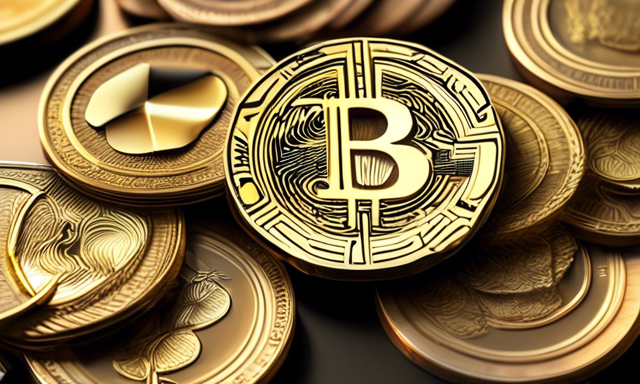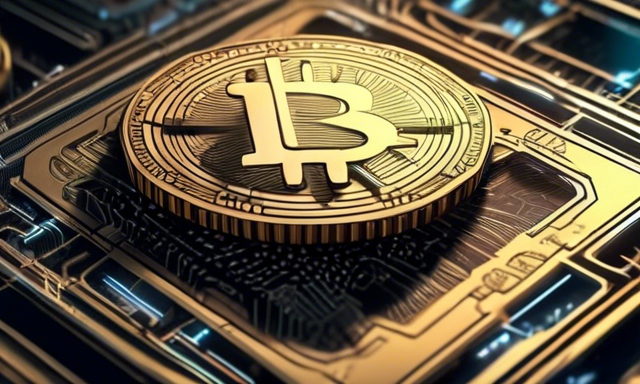Understanding The Ripple-SEC Legal Battle
In the ongoing legal battle between Ripple Labs and the US Securities and Exchange Commission (SEC), there are significant implications for the future of crypto regulation. The disagreement revolves around whether Ripple’s XRP token should be classified as a security or not. Both parties have presented their arguments, and recent developments shed light on the potential outcomes of this legal saga. Dive deeper into the details of this case to understand the intricacies at play and how it could impact the broader crypto industry.
The SEC’s Strong Chance of Winning on Appeal
According to Dennis Kelleher, CEO of Better Markets, the SEC stands at a 90% chance of winning an appeal in the legal battle with Ripple. This prediction is based on the belief that Judge Analisa Torres’ ruling favored institutional investors over retail investors, a decision that goes against established legal norms. Kelleher’s assessment raises questions about the fairness of the initial ruling and the potential implications of an appeal.
- Kelleher’s analysis suggests a high likelihood of success for the SEC in any potential appeal
- He criticizes Judge Torres’ interpretation of securities laws in favor of institutional investors
Challenging the Court’s Decision
The ruling by Judge Torres last year classified Ripple’s institutional XRP sales as investment contracts while excluding programmatic sales from this definition. This distinction plays a crucial role in determining XRP’s regulatory status and sets the stage for a possible appeal by the SEC. The disagreement between the parties highlights the complexity of defining crypto assets within existing legal frameworks.
- Judge Torres’ ruling has significant implications for Ripple’s legal standing in the case
- The distinction between institutional and programmatic sales adds a layer of complexity to the regulatory debate
Ripple’s Confidence in the Outcome
In contrast, Ripple’s Chief Legal Officer, Stuart Alderoty, expresses confidence in the company’s position if the SEC were to appeal the verdict. Alderoty believes that Ripple has a strong chance of prevailing in such a scenario, citing the company’s intention to comply with the court’s decision and address the associated penalties. Ripple’s proactive stance indicates a readiness to navigate the legal complexities surrounding its XRP token.
- Alderoty’s optimistic outlook reflects Ripple’s strategy in addressing regulatory challenges
- Ripple’s commitment to paying the awarded fine demonstrates a cooperative approach to resolving legal disputes
Evaluating Judicial Responses to Crypto Cases
While Kelleher suggests a divergence of opinions among judges on key legal matters, recent rulings provide a nuanced view of how courts interpret crypto-related cases. Judge Amy Berman Jackson’s decision in the Binance US-SEC case echoes Judge Torres’ approach in the Ripple dispute, highlighting a consistent legal precedent in handling similar issues. Understanding these judicial responses adds context to the ongoing regulatory discussions in the crypto space.
- Judge Jackson’s alignment with Judge Torres’ ruling underscores a shared interpretation of securities laws
- The rejection of the SEC’s arguments in the Binance US case reflects a broader trend in judicial scrutiny of crypto regulations
Critical Analysis of Legal Frameworks
The application of the Howey Test, a benchmark for determining securities status, plays a central role in court decisions regarding crypto assets. Judges evaluate how tokens are sold and the expectations of investors to ascertain their regulatory classification. This nuanced assessment distinguishes between different types of investors and their rights within the crypto ecosystem, shaping the legal landscape for future cases.
- The Howey Test serves as a pivotal tool in assessing the securities status of crypto assets
- Distinguishing between institutional and retail investors helps define the regulatory boundaries for token sales
Resolving Regulatory Disputes in the Crypto Market
As the legal battle between Ripple and the SEC unfolds, the dynamics of crypto regulation come into sharper focus. Clarifying misconceptions and addressing legal ambiguities is essential for fostering a transparent and compliant crypto market. By navigating these regulatory challenges with a nuanced understanding of legal frameworks, stakeholders can contribute to a more predictable and stable regulatory environment for the crypto industry.
Hot Take: Navigating Uncertainty in the Ripple-SEC Legal Battle
Stay informed on the latest developments in the Ripple-SEC legal dispute to understand the evolving regulatory landscape in the crypto market. By following the intricacies of this case, you can gain valuable insights into how legal decisions shape the future of crypto regulations. Keep a close eye on the outcomes of this legal saga to anticipate potential impacts on Ripple, the SEC, and the broader crypto ecosystem.





 By
By


 By
By
 By
By
 By
By